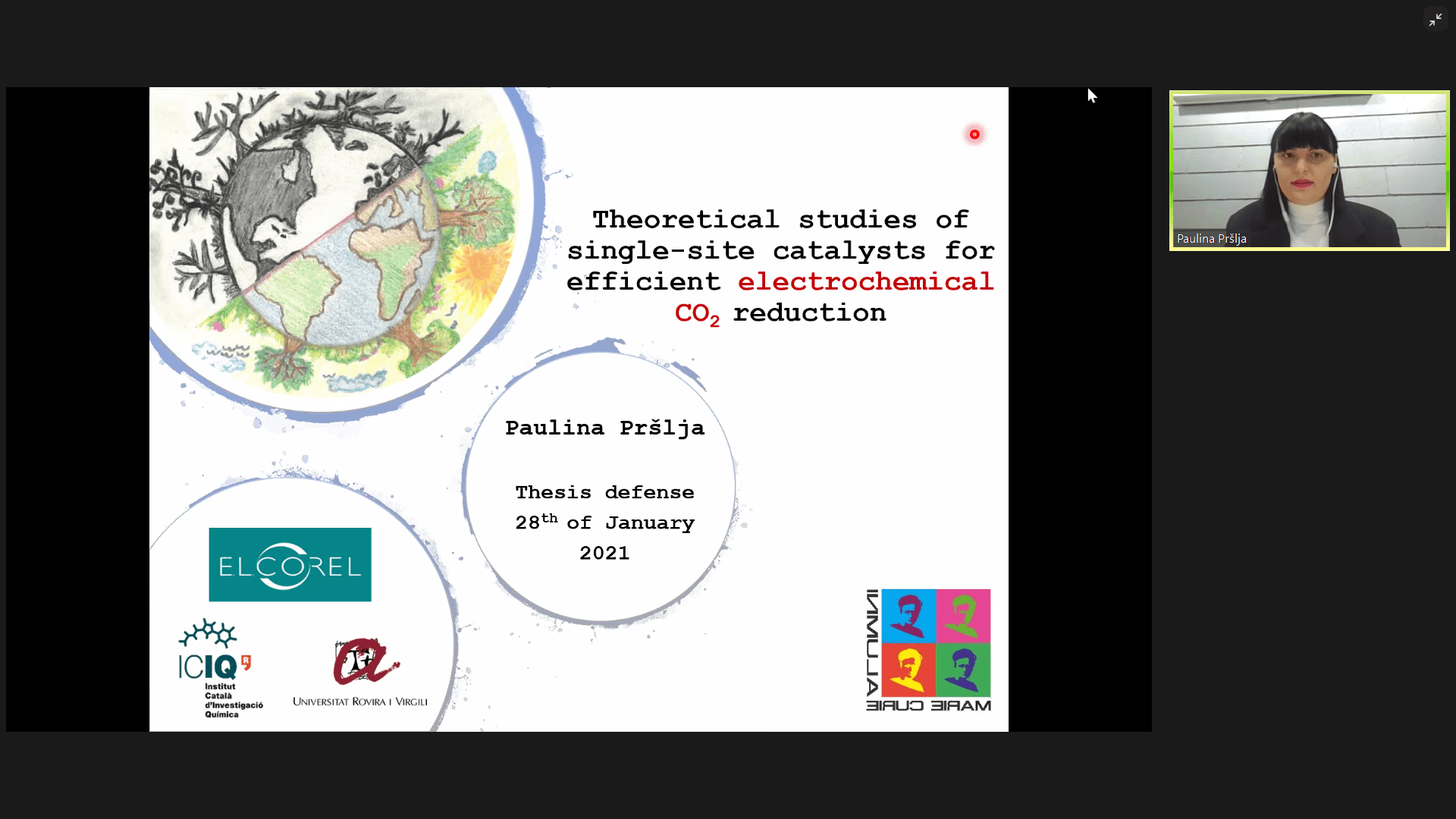Congratulations, Dr. Pršlja!
Paulina Pršlja, PhD student under the supervision of Prof. Núria López (ICIQ), has defended her PhD thesis entitled “Theoretical Studies of Single-Site Catalysts for Efficient Electrochemical CO2 Reduction” (assigned to the Department of the Physical and Inorganic Chemistry of the Universitat Rovira i Virgili) publicly on January 28th.
The members of the evaluation committee were Prof. Jan Rossmeisl (University of Denmark), Prof. José-Ramón Galan-Mascaros (ICIQ), and Prof. Marta Costa Fiqueiredo (Eindhoven University of Technology).
Dr. Pršlja is from Slovenia’s capital Ljubljana, the city of dragons – although her roots come from Croatia and Bosnia. She studied Chemistry at the University of Ljubljana. It was Dr. Pršlja’s sister who sparked her interest in computational chemistry by introducing her to the Monte Carlo methods. During her PhD, she has worked in the Elcorel project thanks to a Marie Curie fellowship.
Why did you become a scientist?
Ever since I was a kid, I’ve liked puzzles, and nature is a great one. It was a natural thing to me to work in the scientific world, as it has daily challenges.
From the lessons learned at ICIQ, which one do you value the most?
During these years I have learnt to be prepared for any possible scenario while doing research. You can expect anything and everything, something new may occur anytime.
What will you miss the most from ICIQ?
I will miss people I have met along the way. But I’m sure we will stay in touch!
What advice do you have for someone who’s starting their PhD now?
My advice is to work independently as soon as you can because you will enjoy the ride more. That is how you will learn to appreciate the help you get.
Where are you going next? What will you do there?
I don’t know yet. Planning in these COVID moments is a bit difficult. For sure I would like to upgrade my knowledge about metal-organic-frameworks.
If you were a piece of lab equipment, what would you be?
I would like to be Martin Gumbau’s computer, so I have access to all the important things like getting extra time on supercomputer Tekla.
Related news

Let's create a brighter future
Join our team to work with renowned researchers, tackle groundbreaking
projects and contribute to meaningful scientific advancements








 20-12-2024
20-12-2024 


















